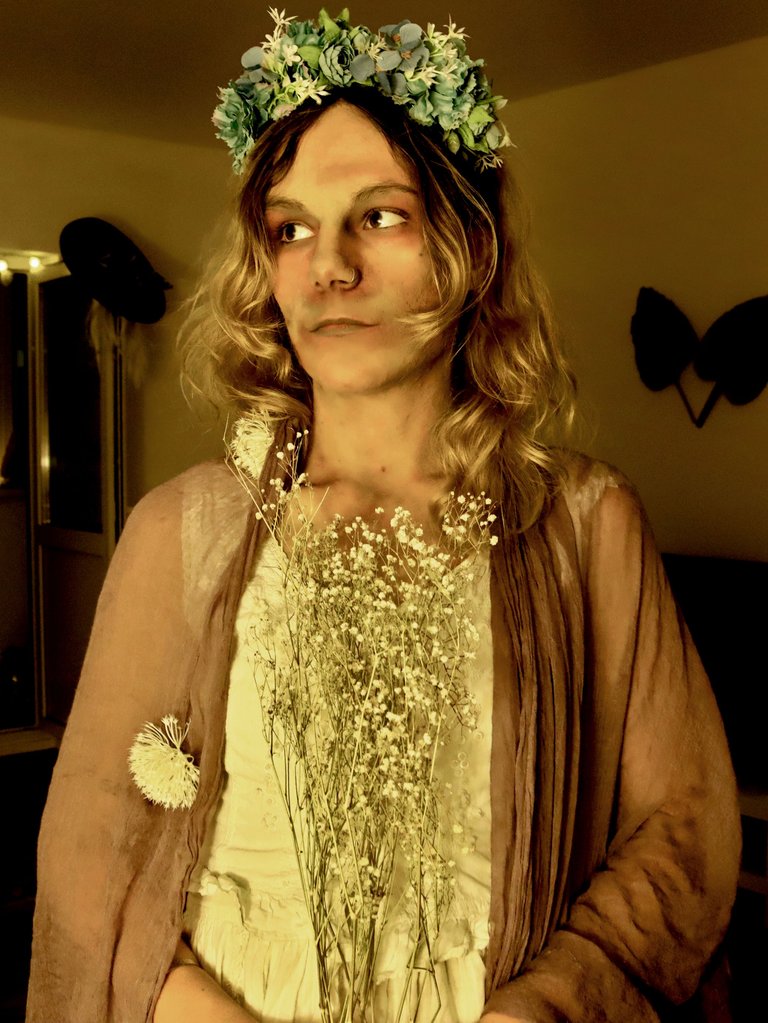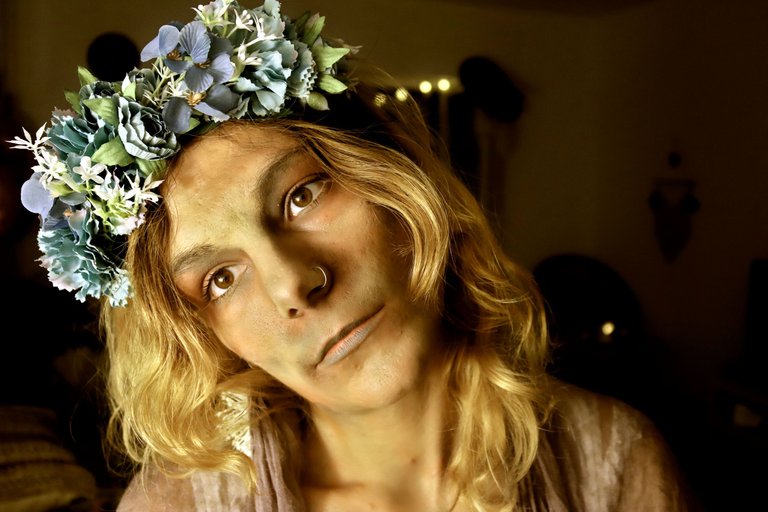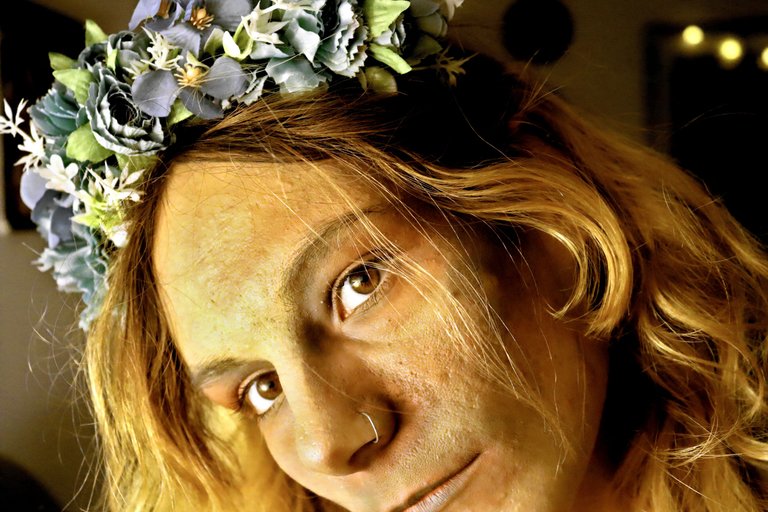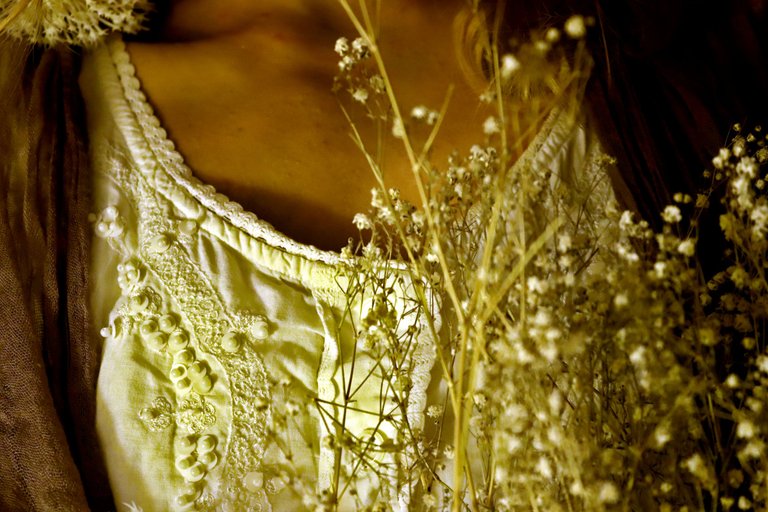When I realized Halloween was a couple of weeks away and I still hadn't made a costume, my mind immediately went to one female character I adore and would like to embody (at least temporarily) - Lady Macbeth.
She's a deeply fascinating character, to me, who captures this sort of duality that exists in any romantic relationship. As I recently wrote here, I think she acts not so much as a fourth witch, but as a catalyst and sacrifice so that her husband can triumph. Because she loves him. She adores him. 'Macbeth' is a fantastic love story.
Except. How do you really do Lady Macbeth as a Halloween outfit? It's a period dress, doesn't really work. We have no details about her death, so instead, I settled on the next best thing: Ophelia.
Ophelia may lack Lady Macbeth's obvious stamina and grit, trading them in for femininity, but she also loves Hamlet deeply (and personally, I believe he also loves her). More importantly, like Lady Macbeth, she acts as a sort of blank canvas at times, taking on more and more of Hamlet's mental fragility.

Where Hamlet never fully goes mad, Ophelia famously does. There's an interesting theme in both plays - where men play at plunging into madness, the women who love them do so for real.
Ophelia, quite literally. She also acts as a deciding factor in the play. With Macbeth, the audience generally has little qualms over his morality - the commonly accepted stance on Macbeth is that he's a baddie. A fascinating, heroic baddie, but a baddie nevertheless. But with Hamlet, we don't have that. We can't know for sure and he ingratiates himself to the public as much as he pushes us away.
We like him and sympathize with his whole situation. Everyone knows the villains in this play are Gertrude and Claudius. Except for Ophelia. We can't forgive Hamlet for Ophelia's death, and at the end of the day, neither can he.
Hamlet walks this fine morality line - does he do what's expected of him and avenge his father's murder? Throughout the play, he keeps tiptoeing around it, playing with becoming evil. But when Ophelia drowns herself, he sees himself become that much-abhorred thing and from then on, his fate is sealed.
Get thee to a nunnery: why wouldst thou be a
breeder of sinners? I am myself indifferent honest;
but yet I could accuse me of such things that it
were better my mother had not borne me: I am very
proud, revengeful, ambitious, with more offences at
my beck than I have thoughts to put them in,
imagination to give them shape, or time to act them
in. What should such fellows as I do crawling
between earth and heaven?
He has arrived at a difficult choice. For Hamlet to become what he needs to be, he must alienate that which is good and pure in him, and thus transfers it on Ophelia. And as if reading his mind, Ophelia goes and drowns herself, leaving Hamlet to become the worst possible version of himself.
There's a recurring theme in Shakespeare of skin-shedding, of doing away with goodness, innocence and all things good. Characters are constantly losing former, better versions of themselves in an effort, concerted across the entire folio, to discover what breaks a man.
If you haven't seen 'Hamlet', I highly recommend this version from the Almeida Theatre, you can find it on YouTube in full, and Andrew Scott is the best Hamlet in history, to me. You can tell, even from the brief clip above, that he feels and understands everything he's saying there, which not all actors manage to do. Jessica Brown Findlay - Ophelia - is fantastic too. She looks inches away from crumbling to the floor.
Sorry. I can nerd out for hours. Maybe I just did it because Ophelia has that cool drowning scene which works perfect for Halloween.











